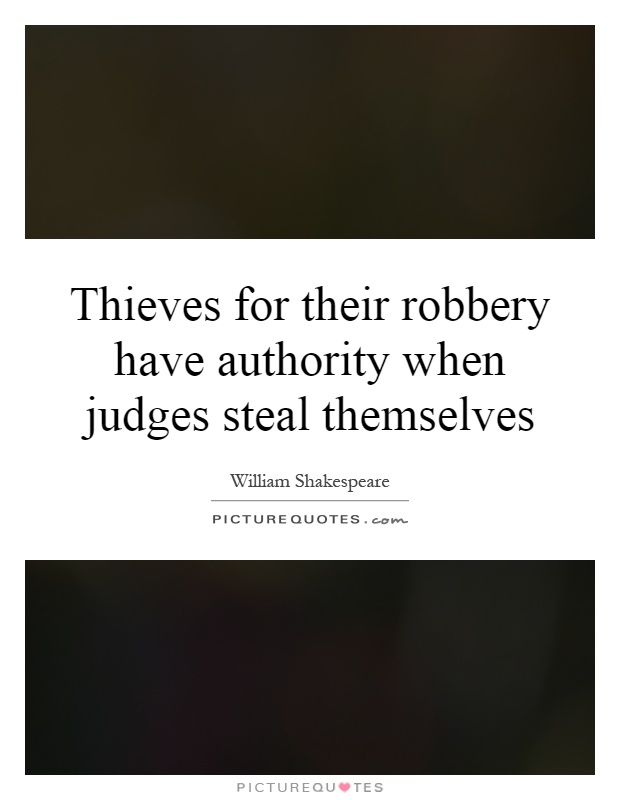Thieves for their robbery have authority when judges steal themselves

Thieves for their robbery have authority when judges steal themselves
The quote “Thieves for their robbery have authority when judges steal themselves” from William Shakespeare’s play Measure for Measure speaks to the corruption and hypocrisy that can exist within systems of power. In this play, the Duke of Vienna leaves his deputy Angelo in charge to enforce strict laws against immorality. However, Angelo himself becomes corrupt and abuses his power by attempting to seduce Isabella, a novice nun, in exchange for saving her brother Claudio from execution.The quote suggests that when those in positions of authority engage in wrongdoing, it gives permission for others to do the same. Thieves, who are typically seen as criminals, are given authority to commit robbery when judges, who are supposed to uphold justice, engage in corrupt behavior. This creates a cycle of corruption and moral decay within society.
Shakespeare’s exploration of this theme in Measure for Measure is a reflection of the political and social climate of his time. During the Elizabethan era, there was widespread corruption within the legal system, with judges often accepting bribes and engaging in unethical practices. Shakespeare uses the character of Angelo to highlight the dangers of unchecked power and the consequences of moral compromise.
The quote also raises questions about the nature of justice and the role of authority in maintaining order. If those in positions of power are not held accountable for their actions, how can society trust in the fairness of the legal system? Shakespeare challenges his audience to consider the implications of corruption within institutions and the impact it has on the moral fabric of society.
Overall, the quote “Thieves for their robbery have authority when judges steal themselves” serves as a powerful reminder of the dangers of corruption and the importance of holding those in positions of authority to a higher standard. Shakespeare’s exploration of this theme in Measure for Measure continues to resonate with audiences today, as we grapple with issues of ethics, power, and justice in our own society.












 Friendship Quotes
Friendship Quotes Love Quotes
Love Quotes Life Quotes
Life Quotes Funny Quotes
Funny Quotes Motivational Quotes
Motivational Quotes Inspirational Quotes
Inspirational Quotes